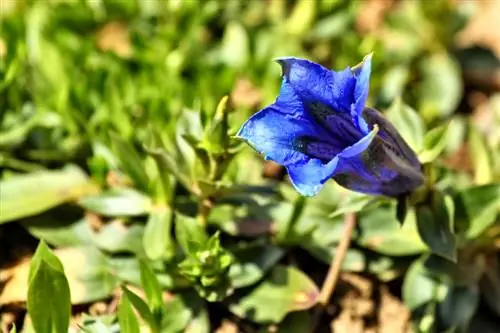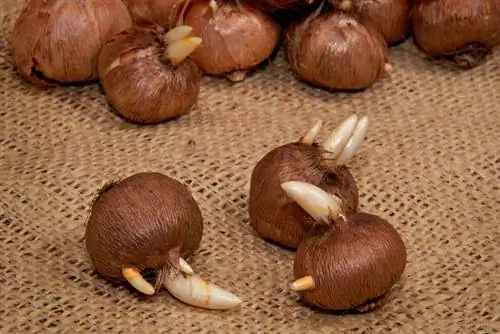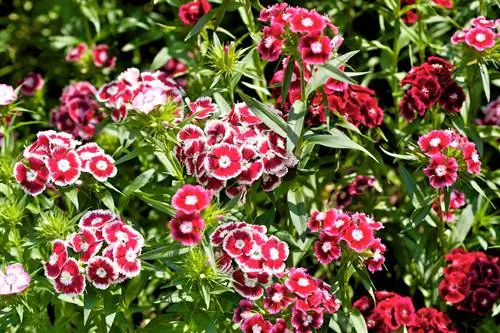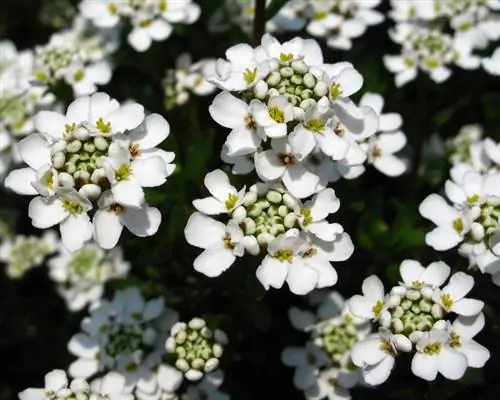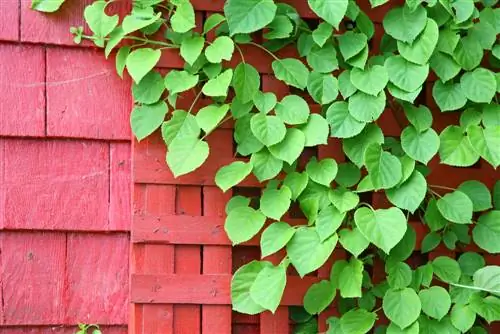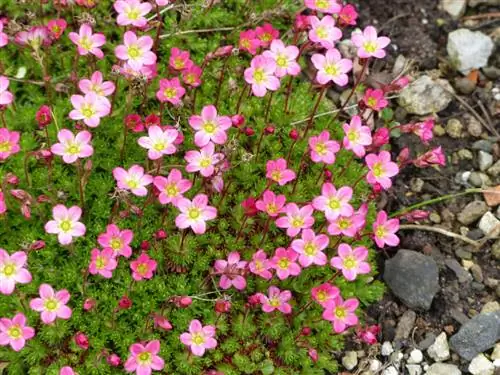- Author admin [email protected].
- Public 2023-12-16 16:46.
- Last modified 2025-06-01 06:02.
Gentian is a robust, evergreen and hardy perennial that thrives for many years in a favorable location. It only has special demands on the soil. What you need to consider when planting.
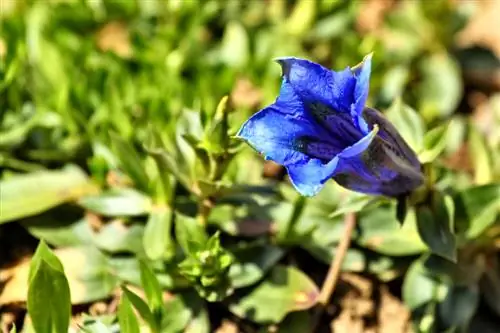
How to plant gentian correctly?
To plant gentian correctly, choose a partially shaded location with loose soil that, depending on the species, should be calcareous or slightly acidic. Plan a planting distance of 10 to 50 cm and plant in spring or autumn with winter protection.
Outdoor or pot - what does gentian grow best in?
Gentian can be easily grown both in the garden and in a container. When caring for the pot, you need to water more often and provide winter protection.
Which location is ideal?
- Partly shaded, no blazing sun
- Not too sunny
- Loose soil
Clusius gentian is ideal for rock gardens, while Koch's gentian grows particularly well under conifers.
What should the plant substrate be like?
Some species of gentians such as the Clusius gentian need calcareous soil. Koch's gentian, on the other hand, only thrives on poor, slightly acidic soils.
The soil must be loose so that waterlogging cannot form. The soil should be enriched with some mature compost.
What planting distance should be maintained?
Depending on the size of the future plant, a planting distance of 10 to 50 centimeters is ideal.
When is the best time to plant?
Plant gentian in early spring so that the plant can settle in well. You can still plant gentian in autumn. Then the perennial needs additional winter protection.
How long does the flowering period last?
The flowering time depends on the respective variety. Spring gentian begins to bloom in March. A second flowering in autumn is often possible.
Other varieties bloom from May to August. Autumn varieties develop their flowers from September to December.
How is gentian propagated?
Propagation occurs by seeds. As a cold germinator, gentian needs cold to germinate. That's why it's best to sow seeds on site or directly in the pot in the fall. The seedlings are planted out in spring.
Does gentian get along with other plants?
Gentian gets along with all plants that have the same location requirements.
Is gentian poisonous?
Blue gentian is not poisonous. Yellow varieties can be slightly poisonous because of their high bitter content in the roots.
Tips & Tricks
Gentians in the wild are threatened with extinction and are protected. Therefore, always buy plants for the garden from specialist garden shops.

